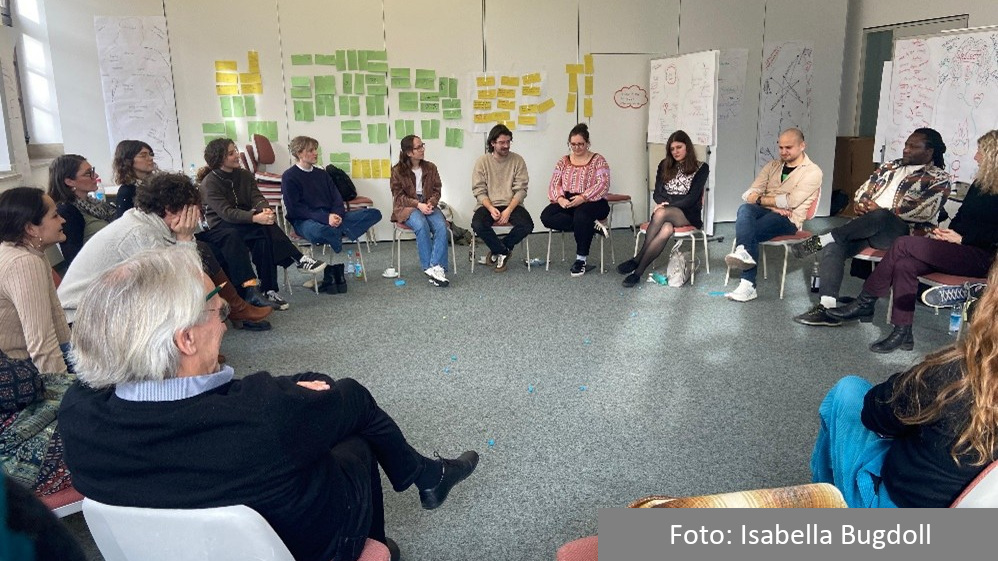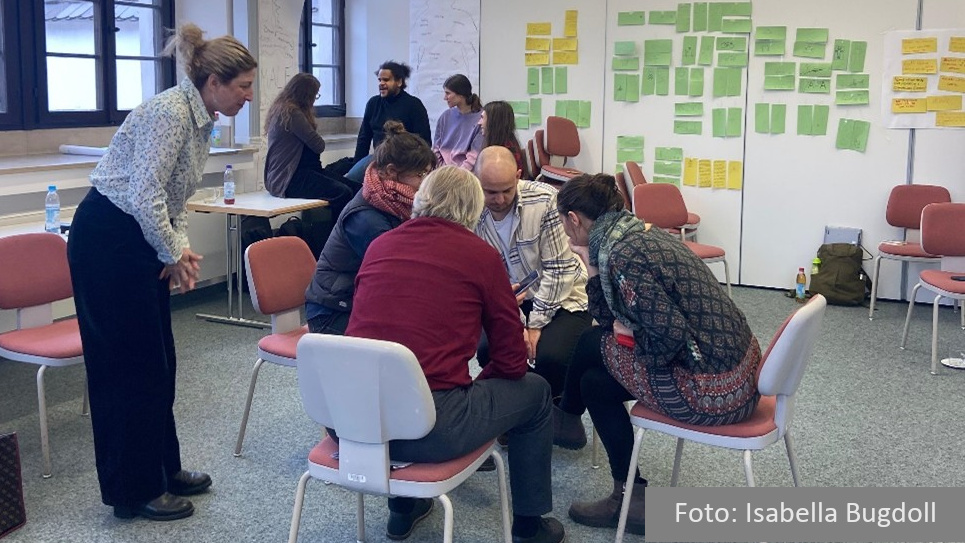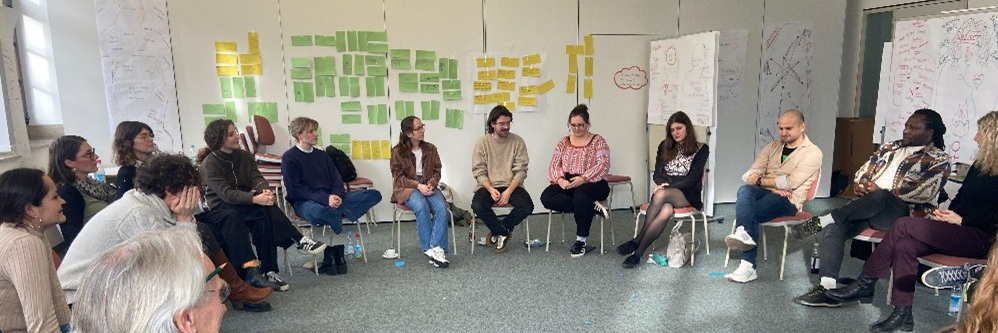From January 29 to 31, 2025, approximately 20 students, lecturers, and civil society activists tested intersectional educational methods in practice, reflecting on both their potential and limitations across various target groups and contexts.

The three-day English-language workshop, held in Augsburg at the Evangelisches Forum Annahof, aimed to equip participants with the skills to create inclusive and equitable (learning) spaces as trainers and facilitators. Led by the highly experienced Dr. Gal Harmat (Senior Fellow at Swisspeace), author of Intersectional Pedagogy: Creative Education Practices for Gender and Peace Work, the workshop focused on intersectionality as both a guiding perspective and a core competence.
Through simulation games, interactive exercises, and insights into the forms of intersectionality – such as its impact on personal identity, public space, and media – the workshop fostered experiential learning. Participants also had the opportunity to reflect on how to apply specific intersectional pedagogical methods in diverse teaching and learning contexts.

The workshop was organized by Dr. Michaela Zöhrer, with support from Christina Pauls, both members of the Chair of Political Science, Peace, and Conflict Research at the University of Augsburg. Additionally, Isabella Bugdoll played a key role in the event’s success as a student assistant. The workshop was made possible through the financial support of the Graduate School of Humanities and Social Sciences (GGS) at the University of Augsburg and the BMBF research network Conflicts.Meanings.Transitions. Our heartfelt thanks to all who contributed!


